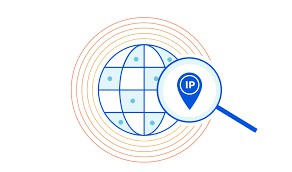Global IT supply chain
International transportation + IT O&M outsourcing + self-owned backbone network
In scenarios such as foreign trade e-commerce and overseas social media operations, selecting the right IP type is crucial for ensuring the stability and efficiency of your business. Both static and dynamic IPs have their respective advantages, and understanding their characteristics and applicable scenarios will help us make more informed decisions.

Static IP: Ensuring Stability and Continuity
A static IP, or a fixed IP address, is suitable for scenarios that require long-term online status. It can be divided into two types: static residential proxies and static datacenter proxies. The former is closer to the network environment of real users, while the latter is a virtual IP generated by a server. Static IPs excel in the following scenarios:
Overseas social media operations: Static IPs can avoid account throttling or banning due to frequent changes in IP addresses, thereby ensuring the stability and health of the account.
Foreign trade e-commerce operations: Managing multiple e-commerce accounts through static IPs can effectively prevent accounts from being associated and recognized by platforms, ensuring account security.
Advertising placement: For advertising tasks that require long-term operation, the high stability of static IPs helps reduce the risk of account bans.
Dynamic IP: Achieving Flexibility and Anonymity
A dynamic IP, or an IP address randomly assigned each time you connect to the internet, is suitable for scenarios with frequent changing needs and a high degree of anonymity. Dynamic IPs have significant advantages in the following scenarios:
Data scraping: Dynamic IPs can effectively circumvent websites’ anti-scraping mechanisms, ensuring the smooth progress of data collection tasks.
Marketing promotion: Operating multiple accounts through dynamic IPs for content promotion helps increase interaction rates and account weights while avoiding operational restrictions caused by a single IP.
How to Make the Choice?
When choosing between static and dynamic IPs, it is necessary to comprehensively weigh the business needs. If your business requires long-term stable connections or managing multiple accounts to avoid being associated and recognized by platforms, static IPs would be a better choice. If your business involves frequent data scraping or multiple account operations to improve anonymity and flexibility, dynamic IPs would be more suitable.
Choosing an IP type is a process of weighing based on business needs. Understanding the advantages and applicable scenarios of both static and dynamic IPs will help us make more informed choices and better support the development of cross-border businesses. Ogcloud, as a leading domestic cloud service provider, is committed to providing enterprises with products and services such as overseas cloud phones, SD-WAN, overseas IDC, and global servers, helping enterprises achieve network upgrading, transformation, and international development. If you have any relevant needs, please feel free to consult our online customer service.

International transportation + IT O&M outsourcing + self-owned backbone network

Cellular chips + overseas GPS + global acceleration network

Overseas server room nodes + dedicated lines + global acceleration network

Global acceleration network + self-developed patented technology + easy linking

Global Acceleration Network + Global Multi-Node + Cloud Network Integration


